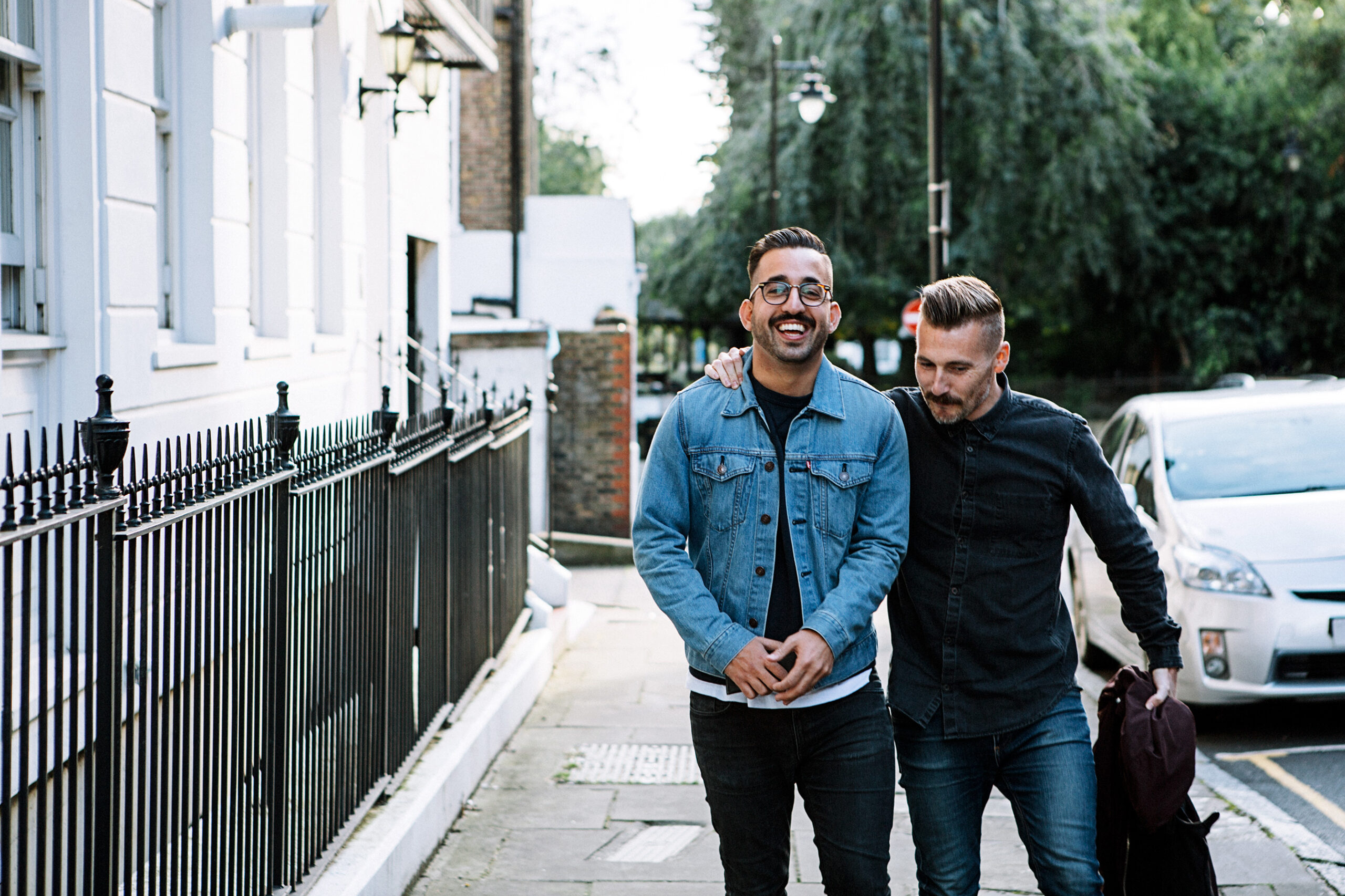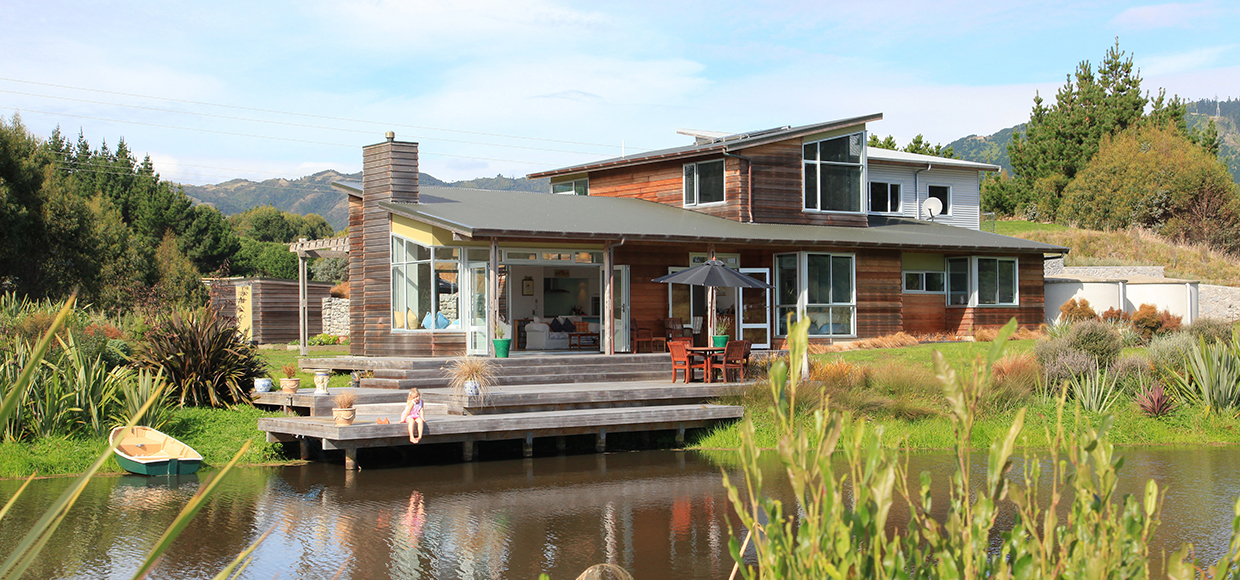Six twenty-something Kiwis who’re leading a new generation of smart, passionate young people who will guide New Zealand to a sustainable future. Anna Hart meets our eco-heroes
Doing your best to leave a better world for your kids to inherit? Anna Hart meets New Zealand’s next generation of eco-heroes—and finds that our future is in safe hands
Photo (above): Nick Holmes
I support grassroots action along the West Coast
Louis Brown, 26, Christchurch
Talk to Louis about his achievements, and he’s shy about all but one of them: his two-year-old daughter, Luciana. “Having a child completely transforms your view of the world,” he says, grinning widely and showing us a photo of his daughter splashing in the bath. “In this field we talk a lot about future generations, so it’s pretty mind-blowing to sit and hold the next generation in your arms.”
In September 2009, two days after Luciana’s first birthday, Louis and fellow West Coaster Guy Ryan launched the award-winning A Day at the Beach festival, setting off on a month-long, 350-kilometre walk along the West Coast from north of Karamea to Franz Josef Glacier. On ten Beach Days along the way, they worked with local communities to plant trees, clear debris and restore habitats in the coastal environment. On six evenings they held Wild Nights of talks, music and performances aimed at celebrating and inspiring local environmental action.
“On the West Coast we can think of ourselves as poor cousins to the rest of New Zealand—and New Zealand thinks of itself as an underdog compared with the rest of the world!” says Louis. “So it’s crucial to build confidence and encourage leadership and grassroots action here.”
Today Louis manages his own consultancy, advising organisations on effective sustainable strategies and, as a Vodafone World of Difference recipient, has founded the Te Wai Pounamu Foundation Trust with two colleagues. “The foundation is run by young people for young people,” says Louis. “We don’t focus on one particular social issue—we’re about increasing the number of young people working for positive change in the community, and supporting them through skills workshops and online networks.”

Photo: Tony Brownjohn
I’m proof that running a business doesn’t have to mean losing your principles
Amanda Judd, 24, Auckland
“I’m seeing it everywhere—young people questioning the way we live today,” says Amanda, from her home on Auckland’s North Shore. “After all, we saw our parents work their arses off, without finding happiness. We saw their health decline, and we saw them get divorced. Today we see an ecological system in decline and an economic system that’s screwed up beyond belief. We want something different for our future.”
Unlikely as it sounds, just a few years ago Amanda was a fashion student— but seeing what happened to the New Zealand fashion industry after the 2008 Free Trade Agreement with China was eye opening. “After university I got a placement with Trelise Cooper, where I was working on the last collection to be sampled in New Zealand. All my friends in the fashion industry were being laid off, and I began looking closely at sweatshops, social justice and sustainability.” In December 2009 she was one of 12 New Zealanders making up the New Zealand Youth Delegation to the UN Climate Change Conference in Copenhagen. “Seeing so many other young people from around the world all sharing the same vision was utterly inspiring,” she says.
Today Amanda works part time at YouthworX, supporting organisations that work with young people. She spends the remainder of her time on various projects—including running Lovenotes, a service that collects and ‘supercycles’ a company’s waste paper into new stationery. “Lovenotes is a sustainable business model which aims to be just and fair on every level,” she says.
Amanda lives and breathes this ethos: “This year I went from full time at YouthworX to part time, and it’s actually been a total blessing to go down to half a salary. It means I cook for myself more, I garden and I spend time with friends instead of going out for dinner all the time. I call it ‘voluntary simplicity’. Try it!”

Photo: Tony Brownjohn
I bring people together on the issues that matter
Carl Chenery, 28, Auckland
“It was at university that I saw we needed to radically shift the direction we were heading in,” says Carl. During mechanical engineering and commerce degrees at the University of Auckland, Carl spent a semester in Canada on exchange. One day he heard pioneering architect William McDonough speak about green design and the possibility of human design being good for the environment, instead of just less harmful. “I began asking how I could connect the skills I felt I had—like helping people work together—to the needs that I saw,” says Carl.
So in 2006 Carl left his engineering job and shifted his attention to bringing people together on the big issues that affect our future. He’s taken 100 young New Zealanders to the Digital Earth Summit on Sustainability in 2006, convened groups of young people to develop sustainability strategies, and run leadership workshops with high school students. “A lot of my work rotates around problem-solving. I love the aliveness that happens when you bring together a group of people with different abilities to focus on change,” he says.
Today Carl works part time at EcoMatters Environment Trust, and spends the rest of his week on other projects, including the Intersect network for purposeful young professionals and the ReGeneration project, a network of young New Zealanders holding events, talks and workshops with the aim of creating a new culture of change. “My job is to identify strengths and abilities in people that they haven’t recognised, and help them to use these gifts,” says Carl. “Our generation faces some really serious challenges, and we all need to bring what we can into the mix. But sometimes we could all use a bit of help discovering our strengths.”
Where does he get his inspiration? “Other people,” says Carl. “And the possibility of being content with the answer I’ll give to my great grandchildren when they ask about what I did at this time.”

Photo: Nick Holmes
I want to inspire action with my documentary films
Nick Holmes, 23, Dunedin
Today Nick is an award-winning documentary filmmaker working out of Dunedin, but his story starts far from there, on Australia’s Eastern Coast. “I grew up diving and snorkelling, and my training is in marine biology and underwater photography.” In 2007 Nick became increasingly engaged with the issue of climate change, and realised that documentary filmmaking could be a real force for change. This led him to a filmmaking masters degree at the University of Otago, and his first feature, Carving the Future, was screened at the most prestigious of natural history film festivals, Wildscreen in Bristol, UK.
In 2009, Nick received a year’s funding through Vodafone’s World of Difference scholarship fund. “My brief is to work with high school students, supporting them in whatever they want to learn. So one day we’ll be learning how to build an earth oven, the next I’ll be taking three young delegates to speak to politicians on issues of sustainability.”
Nick’s partner, Jinty MacTavish, works for Enviroschools, and they share a passionate belief about the contribution young people can make—when they get the support they need. “One thing we have to battle is apathy, because for some reason apathy can be seen as cooler than action,” says Nick. “But when the students we work with come back to class all fired up about permaculture or beach clean-ups, the message comes across loud and clear.”
www.foundation.vodafone.co.nz/author/nick-holmes

Photo: Mark Hamilton
I help young people get onstage and inspired
Te Rawhitiroa Bosch, 24, Raglan
“Basically, I get to play for a living,” says Te Rawhitiroa. As the Enviroschools national youth coordinator, he’s currently leading performing arts group Te Aho Tu¯ Roa—Ko¯ tuia and travelling the length of New Zealand organising Hui a-Rohe, regional jam events for rangatahi (youth).
“Performing arts are an awesome way to get young people engaged in issues of sustainability and social justice,” he says. Te Rawhitiroa is involved at many levels, including playing body percussion icebreakers and performing skits onstage. “Patua te whakama¯ ! Overcome the fear, the shame or embarrassment, that’s the attitude we’ve been rockin’ with the rangatahi,” he says.
While he insists every day is a good day, not every day is easy. “Working with secondary school students has its challenges,” he admits. “This is a generation that grew up on YouTube and Facebook. If something is perceived as boring or uncool, it’s a lot harder to get any traction.” According to Te Rawhitiroa, the key to working with young people is simple: ask them what excites them. “It sounds basic, but it’s amazing how unusual it is for young people to be consulted on things that involve them.”
This year, Te Rawhitiroa and the Ko¯ tuia crew are focusing on rangatahi in wharekura, total immersion Ma¯ ori-language schools, which he finds really rewarding. “Getting to workshop and perform in Ma¯ ori is awesome. I’ve also noticed a different attitude to ecological issues in these kura—students are less likely to do things because it’s ‘environmental’, they’re more likely to be involved when they are connected to their place, when they feel they belong. The way I see it, if your relationship with your community is solid, you’ll look after your place.
“The best thing about our work is seeing the difference it makes to young people. Sometimes teachers come up to us and say, ‘That isn’t the same student I brought here this morning’.”

Photo: Tony Brownjohn
I swapped law for rooftop gardening
Emily Harris, 25, Auckland
In September 2009, law graduate Emily Harris had just completed a prestigious two-year internship at the High Court, and a lucrative career as a lawyer beckoned. But today she runs community gardening company Urban Pantry, which turns wasted urban spaces and terraces into productive veggie gardens. “It wasn’t easy turning my back on the security of a well-paid job, and a lot of people—including my parents—wondered how I could throw away five years of hard studying and a sought-after internship,” says Emily, sitting cross-legged in her Parnell flat. “But the alternative—wasting my entire life on something that didn’t excite me—was much more terrifying.”
Growing up in Invercargill, Emily has always loved the outdoors and been concerned with issues of waste, climate change and sustainability, but her rooftop gardens vision goes further than this. “Moving to Auckland from a small town into a flat in the centre of the city, I realised that a lot of people don’t meet their neighbours and there’s a sad lack of community spirit,” says Emily. “Community gardens are more than just green spaces where people can get away from the office and eat their lunch in natural surroundings. It’s a ground where friendships are formed and communities are knitted.”
This year, Emily has received funding from the Steinlager Pure Futures scholarship fund to help buy gardening supplies for her first rooftop garden projects. Asked how she motivates herself, Emily smiles. “Almost every day I’m ready to leap out of bed and crack into whatever needs doing,” she says. “If I worked in an office, this wouldn’t happen. I know far too many people who hate their jobs.
“My message to other young people is this: ignore the pressure to make a career decision quickly. Take your time, do a gap year, find out what makes you tick. Don’t waste your life on something you’re not passionate about.”
A helping hand
Enthused? Inspired? But unsure what to do next? Sometimes you need a wee bit of assistance to get that brilliant idea off the ground. Luckily, there are various schemes out there to help get you started.
Vodafone Foundation’s World of Difference
is a nationwide search for six passionate people with big visions, who’ll each receive a year’s salary to make them happen. Entries close on August 20. www.foundation.vodafone.co.nz/world-of-difference
Steinlager Pure Futures Campaign
is open to anyone with a project, event or cause to promote. Steinlager has $100,000 worth of cash, products and services to give to the most popular projects. The campaign closes on December 31. www.purefutures.co.nz
Philips Livable Cities Award
is a worldwide hunt for simple solutions to improve the health and wellbeing of people living in cities. Three grants totalling $225,000 could make your idea a reality. Entries close on October 28. www.because.philips.com







